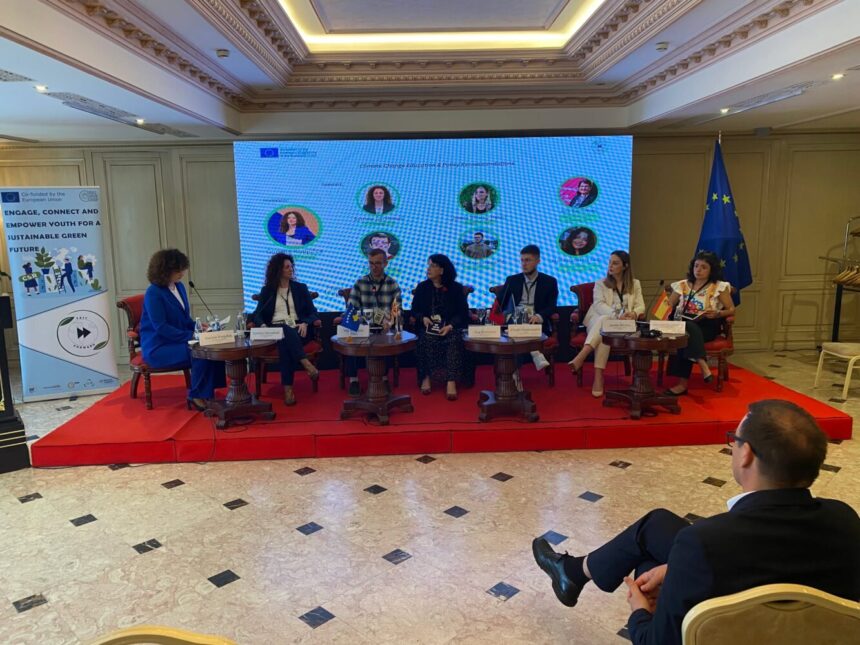As part of the conference “New Bridges for a Sustainable Future in the Western Balkans,” the importance of climate change education was discussed as an integral strategy for the region’s sustainable future.
Panelists emphasized the urgent need for reforms in educational systems and policies to address the challenges of climate change.
Sytrime Dervisholli, a trainer in the field, highlighted some of the most pressing issues, pointing out the lack of institutional capacity and the need for an interdisciplinary approach to tackle climate-related matters.
“Climate issues are cross-sectoral and require a broader approach involving policymaking, science, and ethics,” Dervisholli explained.
She also stressed the challenge teachers face, often feeling unprepared to teach climate topics and lacking the necessary resources to support such education.
Ana Zacharian, Executive Director at Albanian Skills, emphasized the importance of involving all types of organizations in developing skills to tackle climate challenges. She stated that climate change should be understood as an environmental, economic, and social issue that must guide education and policymaking.
“Concrete steps must be taken, and curricula need to be standardized to integrate green competencies,” said Zacharian.
Veljan Parizov, Project Coordinator at Eco-Logic, shared his experience with an environmental chemistry project where students in rural schools participated in practical activities, creating a direct link between education and environmental awareness.
He noted that youth involvement is essential to making progress in this area, sharing that such activities also teach students about reducing their carbon footprint.
“What brings us great joy is going to schools and rural communities. We collaborate with more than 30–40 such schools and municipalities. This Sunday, for instance, we’ll take part in a cycling event—not just for biking, but also to present our materials. It will be a cycling workshop for children, teaching them life skills like how to use and repair a bicycle, while also raising awareness on environmental care and carbon footprint reduction,” he said.
Jonida Biturku-Hysko, an academic staff member, said that environmental education should be more broadly integrated into curricula.
“It’s not enough to mention it only in natural sciences; it should be a topic addressed across all disciplines,” she explained, stressing the need for involvement from all sectors of society.
Maria Isabel De La Cruz Luis, a PhD candidate in Climate and Sustainability, highlighted the use of technology to deal with climate risks. She emphasized the potential of GIS tools and artificial intelligence to help develop cities that can better cope with these challenges.
“Through these tools, we can build safer and more sustainable cities for the future,” she said.
Emelin Hasanspahiq, a trainer at BRAVO, underlined the importance of youth activism in climate change education, noting that schools often fail to cover these topics adequately.
“Young activists are the ones who fill this gap and play a key role in helping communities understand the importance of climate change,” Hasanspahiq concluded.
4o







